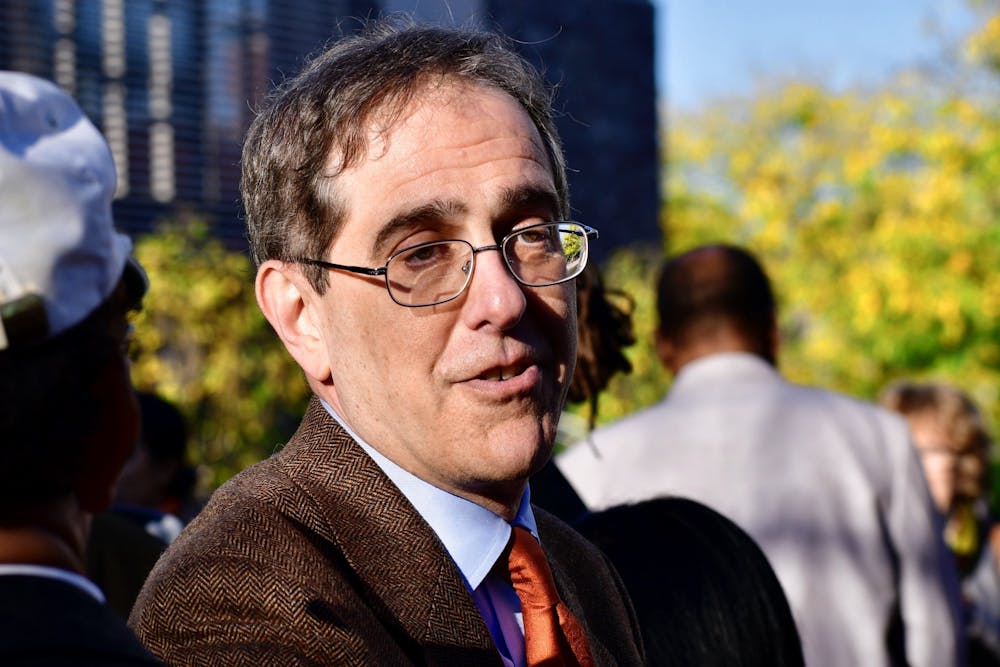Dear friends,
Thank you for your thoughtful and compassionate letter. I appreciate your kind words, your support for the University, and your sense of perspective. This awful public health crisis is something that none of us wanted or expected. By now, nearly all of us know someone who has been seriously ill with the disease, died from it, or lost a job because of it. All of our lives have been disrupted. I hope that you and your families nevertheless remain healthy and well amidst this stress and upheaval.
I appreciate, too, your concern for our student-athletes, who have devoted so much time and energy to the pursuit of competitive excellence and who care so passionately about representing this University. I admire and support what our athletic program does for the education of our students. I think we can be deeply proud of its values, of our students, and of the Ivy League approach at a time when much of intercollegiate athletics has become unmoored from the educational mission of colleges and universities. Princeton University and the Ivy League rightly regard student-athletes first and foremost as students.
That principle, however, leads me to a conclusion different from the one you recommend. This public health crisis has required us to ask all Princeton undergraduates to do a difficult thing: to complete their semesters online, and, in the case of our seniors, to forgo experiences that they had anticipated throughout their time here. Many members of the Class of 2020 might wish that they could have a senior spring in residence next year. We could not accommodate that wish. We are all in this terrible “black swan” of a year together, and we need all of our students — laboratory scientists, performing artists, student-athletes, and others — to persist and graduate if they can, even in these difficult circumstances.
I also believe that if they withdrew so late in the academic year, student-athletes would return in a way that differentiates them from the other students. For example, their senior theses should be nearly complete already. You suggest in your letter that they might continue to work on them after withdrawing. Their theses would then be finished before the spring term began; unlike nearly every other senior on campus, they would not be doing that work, which is the defining capstone of a Princeton University education, in their senior spring. And what of their classes, which are now 75 percent complete? Do they simply abandon that work? Or retake the same courses when they return? One of the things that makes me most proud of our student-athletes is that, unlike their counterparts at so many other universities, they compete while fully immersed in the standard curriculum and learning enterprise of the University. I do not believe I could say that about a group of star athletes who returned to repeat their spring semester after withdrawing so late in the year.
I have put these considerations in Princeton-specific terms, but they also reflect the position of the Ivy League. The unanimous view of Ivy League presidents is that “Consistent with core long-standing principles, Ivy League athletes are students first and foremost. No student-athlete should withdraw from the spring 2020 term for the sole purpose of preserving athletics eligibility.” The League’s members implement this guidance in ways consistent with their own, institutionally-specific academic regulations and programs, but Harvard’s position is identical to ours, and Yale’s, while framed differently, has the same effect.
I understand the disappointment felt by our student-athletes and, indeed, by all of our students — especially our seniors — as a result of the disruption to their Princeton careers. I also understand why reasonable people might disagree with the decisions that I have made about athletic eligibility, or, for that matter, about any number of other hard choices that have arisen this semester and will arise in the months ahead. I continue to believe, however, that my decision reflects the policy most consistent with the University’s distinctive educational model and the role of athletics within it.
With best wishes,

President Christopher L. Eisgruber ’83
Christopher L. Eisgruber ’83 serves as the 20th President of Princeton University.









